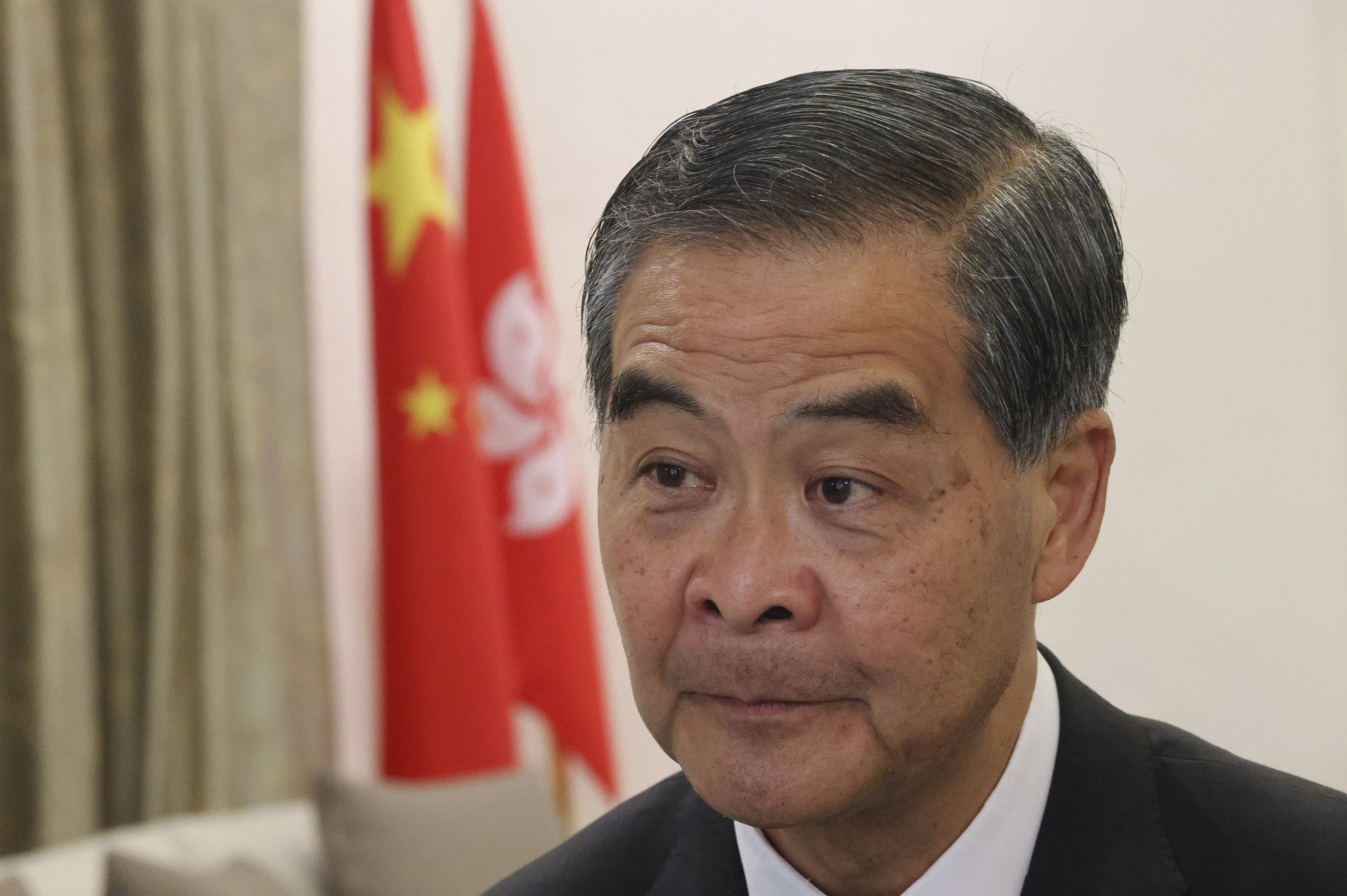
Former city leader CY Leung says Hong Kong can share property market expertise with mainland China
- Leung Chun-ying emphasises importance of curbing property speculation, says city’s taxation and financial toolkit can be instructive for mainland China
- Adds that mainland’s implementation of property laws and regulations, policy measures and market data, lags behind its building capabilities
Leung on Friday highlighted the importance of curbing property speculation with taxation and financial tools, noting Hong Kong’s effective use of stamp duty to regulate the sector, as well as its provision of a large number of affordable flats for residents who found home prices and rents too high.
“For the orderly and healthy development of the mainland’s property market, Hong Kong has a role and can contribute to it,” he told a seminar organised by the think-tanks National Integration Fund Company and the One Country Two Systems Research Institute.
The seminar focused on the annual tone-setting central economic work conference held in Beijing last month, and Hong Kong’s role in the country’s economy.

Leung, a vice-chairman of the Chinese People’s Political Consultative Conference, the country’s top political advisory body, noted that the two-day conference highlighted the stable development of the country’s property market.
He said the mainland’s property market started relatively late, and its implementation of laws and regulations, policy measures and market data, all lagged behind its physical construction capabilities.
One major housing problem faced in many cities was when demand exceeded supply, which made purchase prices and rents unaffordable for some residents, he said. In Hong Kong and Singapore, the government offered a relatively high proportion of affordable places to live, including public housing for rental and sale.
“It is also necessary for the mainland to continue providing affordable housing for some residents without purchasing power,” he said. “It is an important aspect of ensuring people’s livelihood.”
He said the basic principle of regulating real estate lay in distinguishing between affordable and market housing, and that curbing speculation was a priority for the latter.
He said authorities in Hong Kong imposed special stamp duties on individuals and companies that acquired a residential property in Hong Kong and resold it within 36 months to discourage speculation.
Aside from setting different stamp duty rates, Leung said the government could also limit bank mortgages to restrict speculation and at the same time reduce the risks borne by banks.
He noted that Hong Kong had for years maintained a low vacancy rate, at about 4 per cent, which indicated the city’s successful curb on property speculation and high market efficiency.
The former chief executive said Hong Kong did not regulate the sale price of first-hand or second-hand housing to avoid price inversion nor ban the pre-sale of properties for various purposes.
The city had a total of 1.23 million market housing units worth more than HK$10 trillion (US$1.3 billion), Leung said.
“Hong Kong’s property market, including the property rights, transaction and management systems of the housing market, as well as related laws and regulations, policies and measures, are all important references for the mainland in its early stage of the reform of the land use and housing systems,” he said.
The mainland began the new year by extending its policy of easing mortgage rates and pledging “strong support” for first home purchases with the aim of turning the tide for its ailing property market.
Both moves signal Beijing’s intention to continue to ease its grip on the property sector and stimulate demand in a sluggish market throughout 2023, analysts said.

